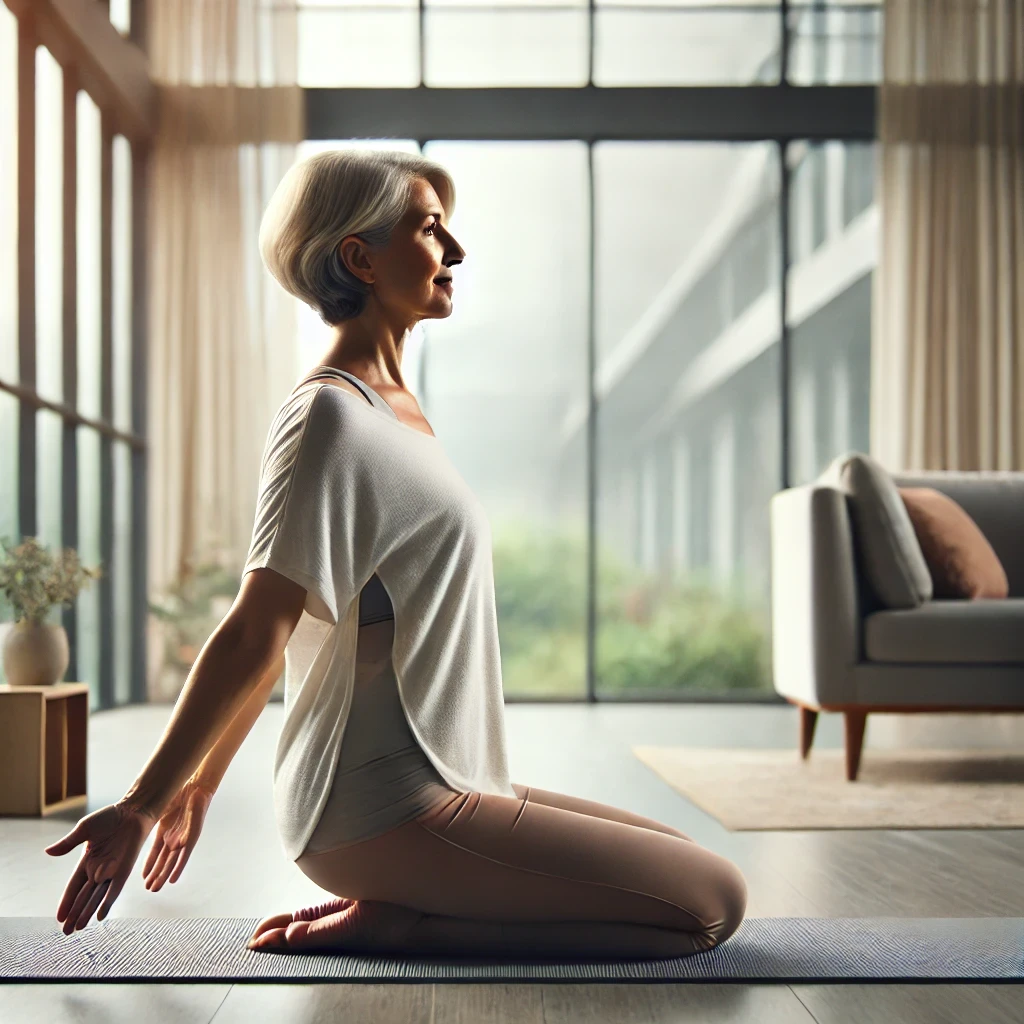Sep 7, 2024
Staying Healthy
Urinary incontinence (UI), or the involuntary leakage of urine, is a common condition affecting millions of older women worldwide. As women age, the risk of bladder control issues increases, with studies showing that around 50% of women over 65 experience some form of urinary incontinence (De Maeyer et al., 2024). While traditional treatments often involve medications or surgery, recent research shows that yoga can offer a natural and effective solution.
New Study Shows Yoga Reduces Urinary Incontinence
A recent study published in the Journal of Aging and Physical Activity reveals that practicing yoga significantly reduces urinary incontinence in older women. The study, led by Dr. Lisa De Maeyer and her team at the University of Antwerp, focused on women aged 60 and above who participated in a 12-week yoga program. The women practiced yoga twice a week, and the results showed a 25% improvement in bladder control compared to the control group (De Maeyer et al., 2024).
How Yoga Helps with Bladder Control
Yoga strengthens the pelvic floor muscles, which support the bladder and urethra. Weak pelvic floor muscles are one of the main causes of urinary incontinence. The yoga poses used in this study, including Bridge Pose (Setu Bandhasana) and Chair Pose (Utkatasana), are particularly beneficial in targeting these muscles, helping older women regain bladder control (De Maeyer et al., 2024).
Why Yoga is a Preferred Treatment for Older Women
Yoga offers a non-invasive and holistic approach to managing urinary incontinence. Unlike medications or surgery, yoga has minimal side effects and can be easily integrated into a daily routine. For older women, especially those managing multiple health issues, yoga is a gentle yet effective way to improve bladder control and overall well-being (Smith et al., 2022).
Additionally, yoga is known to reduce stress, which can exacerbate bladder issues. A study by Jones and Patel (2021) found that stress and anxiety are linked to increased urinary incontinence symptoms, making yoga an excellent option for mental health and bladder health simultaneously.
How 360/Health Can Support Your Wellness Journey
At 360/Health, we believe in personalized care that addresses both the physical and mental aspects of health. Our platform helps users find tailored solutions, including holistic treatments like yoga, to manage conditions like urinary incontinence. By combining the best of modern healthcare and wellness practices, 360/Health empowers users to take control of their health.
References
De Maeyer, L., et al. (2024). Impact of Yoga on Urinary Incontinence in Older Women. Journal of Aging and Physical Activity.
Smith, M., et al. (2022). Non-Invasive Treatments for Urinary Incontinence. American Journal of Geriatric Medicine.
Jones, R., & Patel, N. (2021). Stress and Urinary Incontinence: The Role of Anxiety. International Urology Journal.
